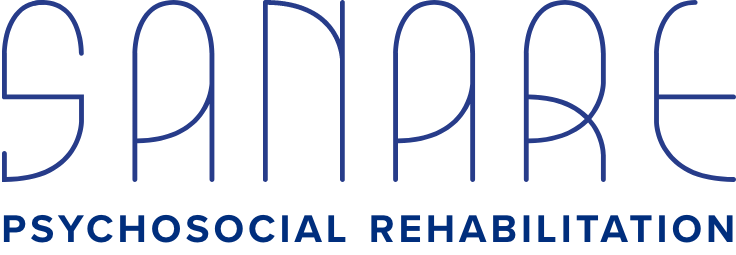
What is executive functioning?
Executive functioning is a set of cognitive processes that are essential for managing and regulating thoughts, actions, and emotions. Executive functioning is essential for activities such as problem solving, decision making, and completing tasks. Difficulties in executive function can impact various aspects of life including: academic performance, job performance, financial stability, home environment, and relationships. The processes of executive functioning include skills such as:
Planning and Organization: The ability to set goals, create plans, organize and follow through on tasks to achieve goals.
Working Memory: The capacity to hold and manipulate information over short periods.
Attention Control: The skills to focus on relevant information while filtering out distractions.
Inhibition and Self-Control: The ability to suppress impulsive behaviors and responses in favor of more strategic actions.
Cognitive Flexibility: The capacity to adapt to new situations, switch between tasks (multi-tasking), and think about things from different perspectives.
Task Initiation: The ability to begin tasks and projects without undue procrastination.
Emotion Regulation: The ability to manage one’s emotional responses in a way that allows for the completion of goals.
Several mental health concerns can impact executive functioning. These include:
Attention-Deficit/Hyperactivity Disorder (ADHD): Individuals with ADHD often struggle with planning, organization, working memory, and impulse control. They may find it challenging to stay focused on tasks, manage time effectively, and regulate their behavior.
Anxiety Disorders: Anxiety can impair executive functioning by causing difficulties with concentration, decision-making, and cognitive flexibility. High levels of anxiety can also interfere with working memory and planning.
Depression: Depression can affect executive functioning by diminishing motivation, leading to difficulties in planning and organizing tasks. It may also impact concentration and working memory.
Autism Spectrum Disorder (ASD): People with ASD may experience challenges with executive functions such as cognitive flexibility, organization, and planning. Difficulty in shifting focus and adapting to change can be particularly pronounced.
Traumatic Brain Injury (TBI): Damage to the brain from a TBI can affect various aspects of executive functioning, including planning, problem-solving, and impulse control.
Obsessive-Compulsive Disorder (OCD): OCD can interfere with executive functioning by causing persistent, intrusive thoughts and compulsive behaviors that disrupt normal cognitive processes and task completion.
Schizophrenia: Individuals with schizophrenia may experience significant executive functioning impairments, affecting their ability to plan, organize, and make decisions. Symptoms like disorganized thinking can further complicate executive functions.
Bipolar Disorder: During manic or depressive episodes, executive functioning can be impaired, affecting decision-making, impulse control, and organization.
Substance Use Disorders: Chronic use of substances can damage brain areas involved in executive functioning, leading to difficulties with planning, decision-making, and self-regulation.
Post-Traumatic Stress Disorder (PTSD): PTSD can affect executive functioning by impairing concentration, memory, and the ability to regulate emotions and responses to stressors.
Other factors that can impact executive function:
Neurological Conditions: Brain structure and function can significantly impact executive functioning. Neurodegenerative diseases (such as Alzheimer's or Parkinson's) can alter the brain areas responsible for executive functions, leading to difficulties in planning, organization, and impulse control.
Genetics: Genetic factors can play a role in conditions that impact executive functioning. For example, neuro-developmental disorders have a genetic component that can influence executive functioning.
Developmental Factors: Executive functioning develops over time, and delays or atypical development in children can lead to difficulties. Developmental disorders like Autism Spectrum Disorder (ASD) or Specific Learning Disabilities can impact the development of executive skills.
Trauma and Stress: Exposure to chronic stress, trauma, or adverse experiences, especially during critical developmental periods, can affect the brain’s executive functioning areas. This can lead to difficulties with emotional regulation, planning, and decision-making.
Environmental Factors: Factors such as a lack of stimulating and supportive environments during crucial developmental periods can affect the development of executive functioning skills. Educational and social experiences play a role in shaping these abilities.
Medical Conditions: Certain medical conditions, including those affecting the brain (e.g., stroke, brain tumors) or systemic health issues (e.g., chronic illness, endocrine disorders), can impact executive functioning.
Sleep Disorders: Poor sleep or sleep disorders can affect cognitive processes, including those related to executive functioning. Chronic sleep deprivation can impair attention, memory, and cognitive flexibility.
Nutritional Deficiencies: Deficiencies in certain nutrients (such as omega-3 fatty acids, iron, or B vitamins) can impact brain function and, consequently, executive functioning.
How Sanare Psychosocial Rehabilitation can help with Executive Function Coaching:
Personalized Strategies: Our clinicians work one-on-one with clients to develop strategies that address their specific executive functioning challenges, such as organization, time management, or impulse control.
Skill Development: They help clients build and strengthen key executive functioning skills through structured exercises and practical applications. This might include techniques for better planning, prioritizing tasks, and improving working memory.
Goal Setting and Planning: Our therapists assist clients in setting realistic, achievable goals and creating action plans. They help break down larger tasks into manageable steps, making it easier to stay focused and organized.
Accountability and Motivation: By providing regular check-ins and tracking progress, our team helps clients stay accountable and motivated. This support can be crucial for overcoming procrastination and gaining momentum.
Problem-Solving Skills: Psychosocial rehabilitation therapists help clients develop and practice problem-solving skills. This can be particularly useful when clients encounter obstacles in day to day life.
Behavioral Techniques: They may use behavioral strategies to address specific issues, such as creating routines, managing distractions, and enhancing self-regulation.
Emotional Support: Our counselors provide emotional support and encouragement, helping clients manage stress and build confidence in their abilities to handle executive functioning tasks. Having a therapist there for support in the moment is one of the things that makes PSR unique.
Building Self-Awareness: The Sanare therapists help clients develop greater self-awareness of their strengths and areas for improvement, which can lead to more effective self-management and self-regulation.
Skill Transfer: They assist in applying executive functioning skills across various settings, such as school, work, and home, ensuring that improvements are not limited to one area of life.
Teaching Coping Mechanisms: The Sanare Team can introduce coping mechanisms to manage challenges related to executive functioning, such as stress-reduction techniques or methods to deal with distractions.
If you struggle with Executive Function and think that psychosocial rehabilitation could be a helpful part of your recovery, please contact us for more information.
